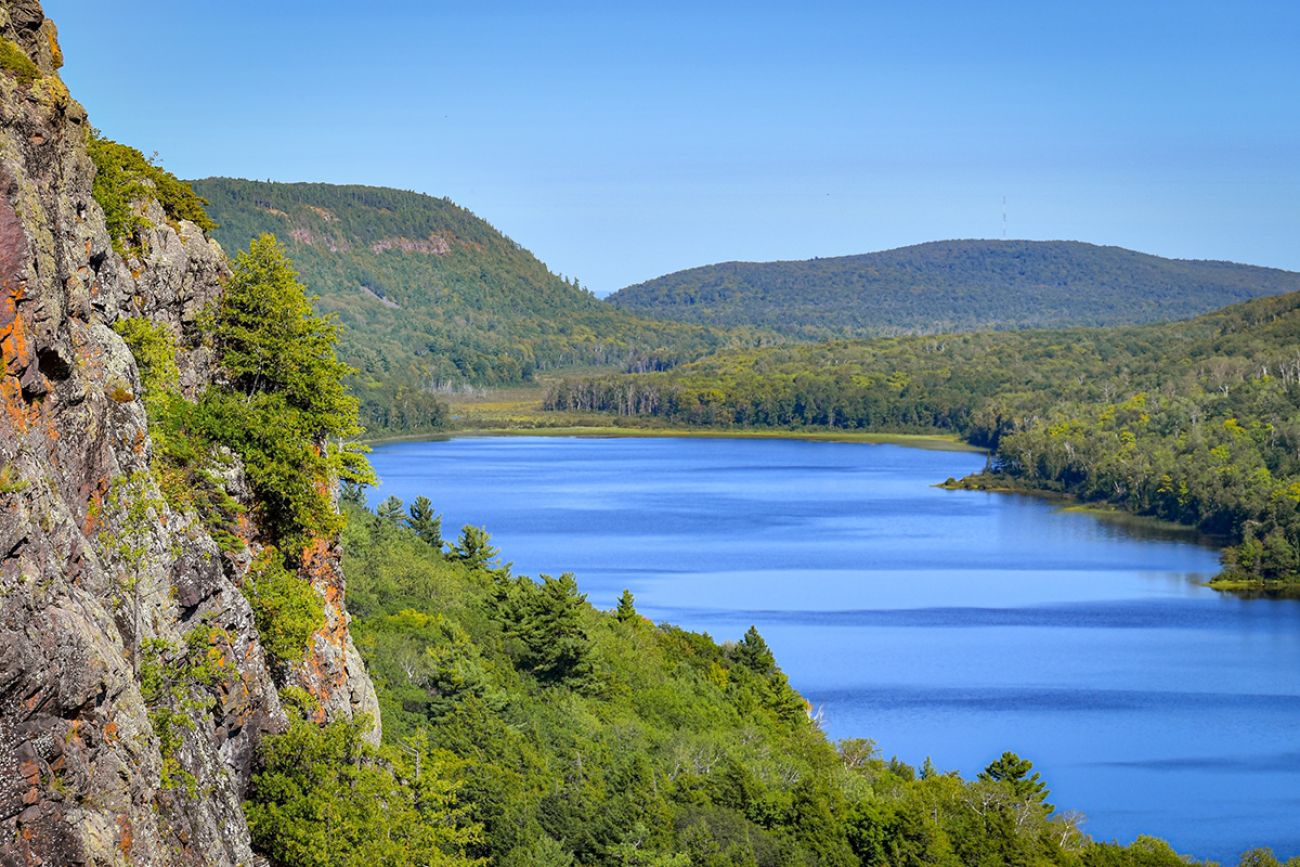Michigan pauses $50M investment to bring back copper mining to Upper Peninsula

- Plans to award $50 million to copper mine in development in the Upper Peninsula stalled Tuesday
- The Michigan Strategic Fund board raised questions about the project’s financing and safeguards
- The western U.P. has suffered since the last copper mines closed in the mid 1990s, but controversy as dogged this project
Michigan’s plan to award $50 million to build a copper mine in the far western reaches of the Upper Peninsula veered off track Tuesday amid concerns about the project’s lack of investors and oversight.
The Highland Copper Co. wants to revive copper mining in a region whose fortunes have sagged since the last major operation closed in the mid 1990s.
The plan would create nearly 400 good-paying jobs in Gogebic County and help supply the state’s burgeoning electric vehicle battery industry, Barry O’Shea, interim CEO of the Canadian-based company told members of the Michigan Strategic Fund, which allocates tax money for economic development.
But he acknowledged that the $425 million project northeast of Ironwood near the shore of Lake Superior so far doesn’t have investors — prompting the board to take the unusual step of skipping a vote on the investment and sending the proposal to a committee.
“I’m struggling to support it,” said Dimitrius Hutcherson, a Michigan Strategic Fund board member and executive vice president at First Independence Bank.

Other board members, appointed by Gov. Gretchen Whitmer, raised questions about Highland’s capital — the company is valued at about $60 million — and whether future partners in the deal would become majority owners instead of investors. Other concerns included the mine’s plan to stay open for only 11 years, although company officials said Tuesday it could operate a few years longer.
“This seems like a really large grant for such a short period of time,” said board member Leon Richardson, CEO of Southfield-based Chemico Group.
Related:
- Bipartisan vibes as Michigan lawmakers seek to reform SOAR incentive fund
- Gov. Whitmer’s SOAR incentive fund, once a triumph, now faces headwinds
- Michigan invests $5M to turn 3 properties into 'build-ready' mega sites
The project was initially proposed in 2013, but shelved as copper prices plummeted. Now, demand is surging as the electric vehicle industry expands and the mineral was added to the federal list of critical minerals.
EVs require 2.5 times more of the metal than combustion engines, and a Bloomberg report estimates that demand for copper will surge 53% by 2040.
At today’s copper pricing and Copperwood’s projected volume, the mine could generate $2.6 billion in mineral sales over 11 years.
The mine project, located about five hours west of the Mackinac Bridge near the Wisconsin border, drew significant environmental opposition for its proximity to both Lake Superior and the Porcupine Mountains Wilderness State Park.
But regional and state economic boosters embraced the project as a way to reinvigorate Gogebic County, which has just 14,000 residents and is among the smallest of Michigan’s 83 counties.
The project promises 380 new jobs paying $80,000 to $120,000, along with 300 construction jobs. State projections say it could result in $15 million in annual municipal and state tax revenue.
“We need a win,” Marty Fittante, CEO of InvestUP economic development organization for the Upper Peninsula, told the Michigan Strategic Fund board.
The region was partially built on mining but has suffered as operations closed. It took another blow in 2018 when the state closed the Ojibway Correctional Facility, eliminating about 200 jobs.
Over 50 years, the area’s school-aged population has dropped by 70 percent, Fittante said. The county’s median age, 50, is 10 years older than that of the state, and its median income is $38,625, compared to $68,000 for the state.
“The demographics of what we're facing in this region in particular are not sustainable,” Fittante said.
The $50 million state request for Copperwood was made under the Strategic Site Readiness Program, designed to use state funds to make large parcels of land development-ready.
Separately, the economic development board on Tuesday approved $87.5 million in taxpayer money for site work on 18 potential development sites across the state.
The Strategic Site Readiness Program originated as a portion of the $2 billion large-scale incentive program launched in 2021. That program, known as the Strategic Outreach and Attraction Reserve (SOAR) fund, was intended to allow the state to make large investments in what it called transformational projects.
SOAR has since been rebranded as the Make It in Michigan fund, as the Legislature weighs reforms to give fewer awards directly to companies and to seek broader community benefits for investments using public economic development funds.
State officials already have granted permits for the 505-acre Copperwood Mine. The company had sought the state investment to help cover $145 million in costs for new roads, water lines, utilities and other infrastructure.
Benefits to the community would include better internet connectivity and year-round access via County Road 519 to the Porcupine Wilderness State Park, officials said.
Highland Copper had hoped to start construction this year and open the mine in 2026. O’Shea said increased demand would allow the mine to reinvest and also increase capacity at its nearby White Pine mine. Last week, the company announced its plans to increase testing, with the intent of mining there.
The postponed vote on Michigan’s $50 million investment “will be challenging,” O’Shea said
“We’ve been building momentum regionally and certainly … with our shareholders,” he said.
“We're excited this year to move forward.”
Business Watch
Covering the intersection of business and policy, and informing Michigan employers and workers on the long road back from coronavirus.
- About Business Watch
- Subscribe
- Share tips and questions with Bridge Business Editor Paula Gardner
Thanks to our Business Watch sponsors.
Support Bridge's nonprofit civic journalism. Donate today.
See what new members are saying about why they donated to Bridge Michigan:
- “In order for this information to be accurate and unbiased it must be underwritten by its readers, not by special interests.” - Larry S.
- “Not many other media sources report on the topics Bridge does.” - Susan B.
- “Your journalism is outstanding and rare these days.” - Mark S.
If you want to ensure the future of nonpartisan, nonprofit Michigan journalism, please become a member today. You, too, will be asked why you donated and maybe we'll feature your quote next time!




